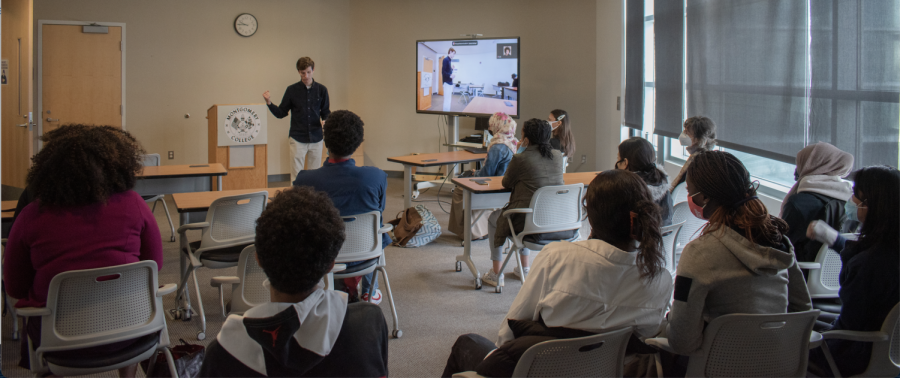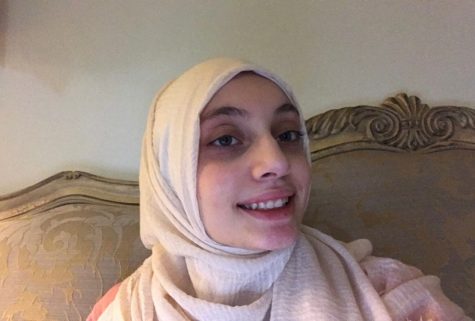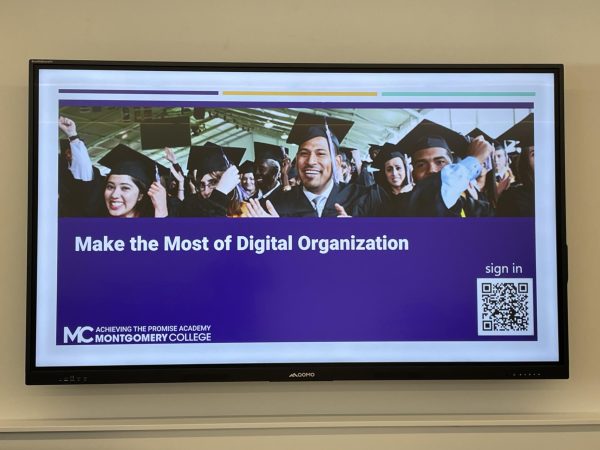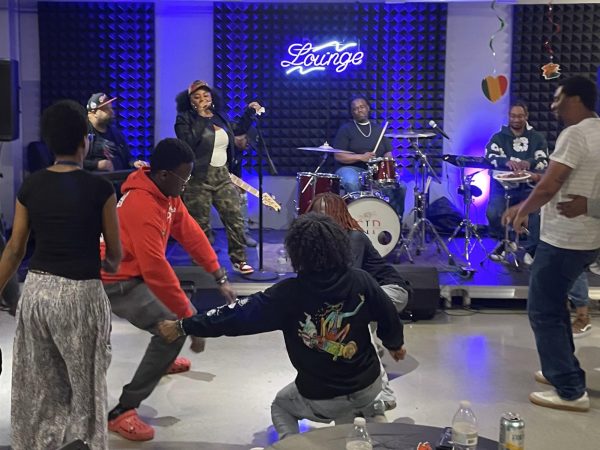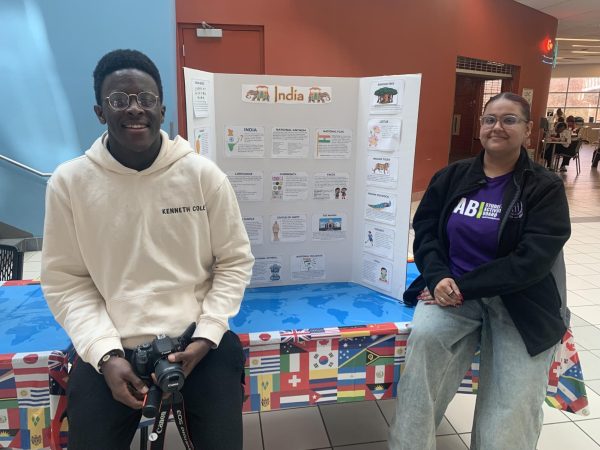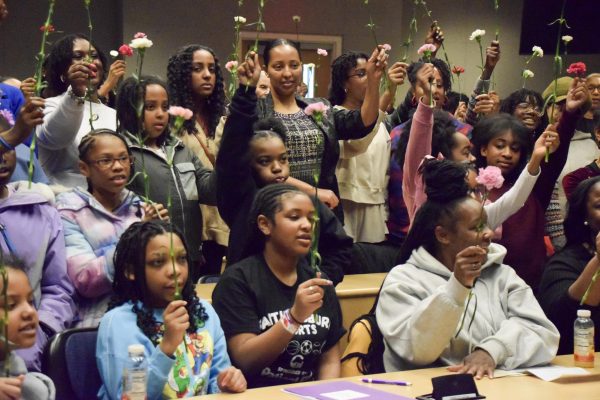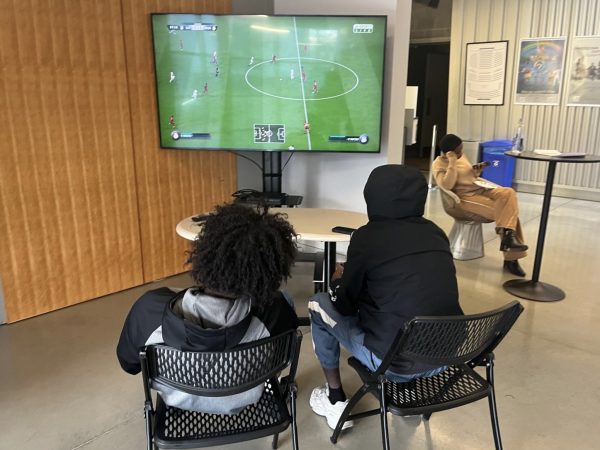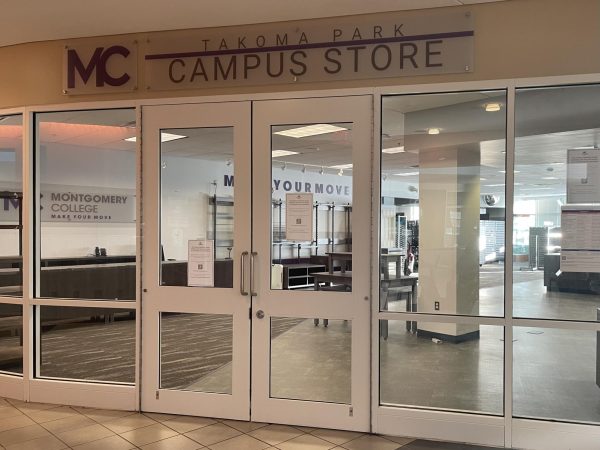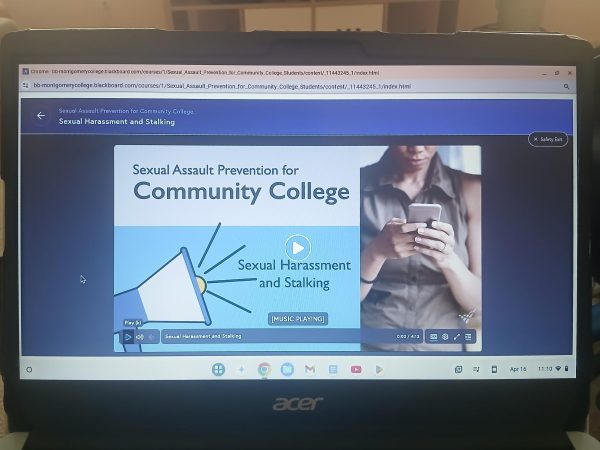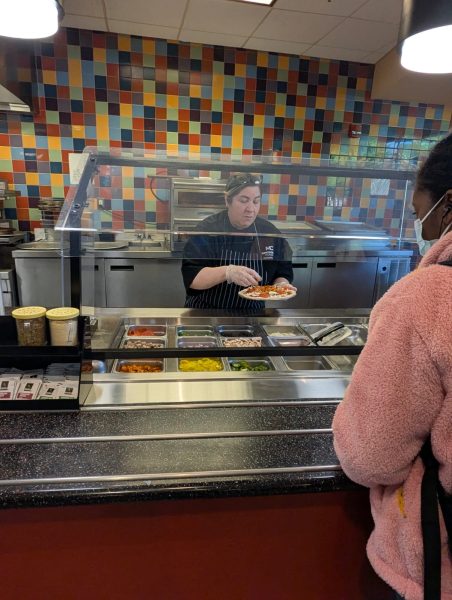“Turning Trauma into a Driving Force – Escaping War in Syria” Event
Reem Saleh, assistant editor of The Excalibur, organized the talk by Omar Alshogre.
Photo credit, Jada Hoffman
When I invited Syrian refugee Omar Alshogre to speak on campus this spring, I did not expect him to connect his experience so strongly with causes that occur in the United States and abroad. Alshogre is a public speaker and human rights activist. I first learned about Alshogre’s story through an Arabic language podcast. As a Syrian myself, his story really resonated with me, and I felt that it needed to be heard by the Montgomery College community.
We hosted the event, which was titled “Turning Trauma into a Driving Force- Escaping War in Syria,” on March 30 in room 302 in the student services building on the Takoma Park/Silver Spring campus. The event had about 20 in person attendees as well as 7 attendees on Zoom.
Alshogre and the attendees were fully engaged during the entire event. I was surprised to see how engaged people were as well as their reactions to the talk. Despite it being eleven years since the start of the war, people were still interested in hearing about Syria.
At the end of the talk, we had a question-and-answer session, and during that session a student asked Alshogre, “What is the best way to help Syrians?” In response, Alshogre mentioned raising awareness through social media and reaching out to congressmen, but he added, “There are many ways to help causes related to Syria, Ukraine, climate change, and other issues that take up no time from our time.”
Another student asked Alshogre, “What did you look forward to most when you were in prison?” Alshogre mentioned, eating ice cream sandwiches were what he looked forward to, but he also had a different kind of hope he said, “I was told that my family was killed when I was in prison, so I thought if I get out of prison I want to find someone that I know.”
When he was fifteen years old, Alshogre was wrongfully imprisoned for three years by the Assad regime. In Syria, prisoners are frequently moved to different prisons around the country so that no one can find out where they are being held. The last prison Alshogre was in, Sednaya Military Prison, as mentioned in the Guardian, is known as a human slaughterhouse.
Alshogre began his talk by reflecting on how certain events can cause an emotional stir in people and cause them to want to create change. Those emotions often motivate people to go out and protest in the streets. Protests occurred and still occur in Syria, and there were protests in Minneapolis after George Floyd was killed, which were mentioned by Alshogre.
A point that Alshogre made clear is that a person must use what they love to do the most in order to support the causes they care the most about. “To be able to keep working on the cause you are working on, you need to love what you are doing; otherwise you will not be able to sustain your work,” Alshogre stated.
I appreciated how Alshogre connected his experiences as a Syrian to the wider world and issues that exist elsewhere, including in Ukraine. He emphasized that one problem is that these experiences are not unique. Alshogre also expressed that “You can’t disconnect causes that much; you can’t just care about Syrian people if you are Syrian. Humanity does not work like that because whenever any problem happens you want sympathy.”
Alshogre used himself as an example, “If I can’t sympathize with people in Ukraine or people suffering from wrongful conviction in California, these people will not sympathize with me when I need them.”
Something that resonated with me the most was when Alshogre mentioned Tim Young. Young is an African-American male who, like Alshogre, was wrongfully imprisoned and has been on death row since 2006. Alshogre said he is currently working on bringing awareness to Young’s case alongside a lawyer who took up the case pro bono. “What unifies us is the suffering from the corrupt systems that allow this to happen,” Alshogre said.
It stood out to me because here are two men from relatively different backgrounds who connected over their shared experiences of being wrongfully imprisoned. That is a human issue and not an issue of race or religion. “This is humanity’s struggle in multiple ways,” Alshogre pointed out when discussing this.
Alshogre mentioning Young showed that wrongful convictions do not only occur in a country that feels far away like Syria, but that they occur in the United States, in California and other states as well.
Another thing Alshogre mentioned was the importance of reaching out to representatives. He said “I need to come to Maryland and meet people in Maryland who care about Syria, so they can reach out to their congressmen and say, ‘I care about Syria, and I want you to care about it as well’.” He also mentioned the importance of voting and ensuring your voice is heard.
As reported in the Washington Post, free elections do not exist in Syria. Alshogre speaking about the importance of voting was impactful because freedom and democracy are two things that he, alongside millions of Syrians, is fighting for.
Despite the harrowing experiences Alshogre went through, he always has a smile on his face and is very jovial. He is very engaging and eloquent, and we can all learn something from him and his experience.
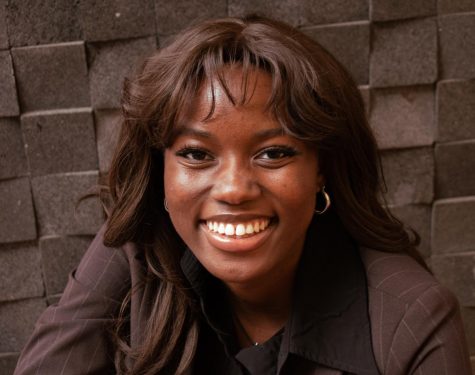
Jada Hoffman joined The Excalibur as a photographer in the spring of 2022. She is based at the Takoma Park/Silver Spring campus and is completing her AA in aerospace engineering. She was the Photo Editor, managing photo editing and staff photography, for the Excalibur in the fall of 2022. She joined the Excalibur to expand her love for photography.



